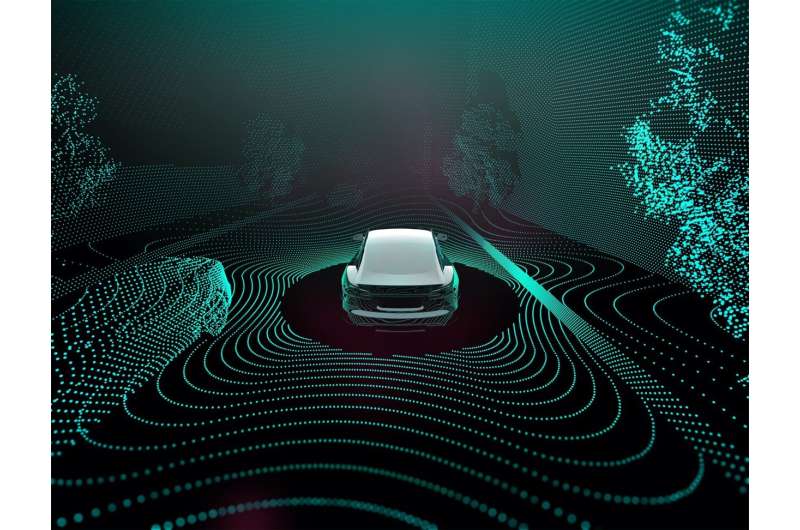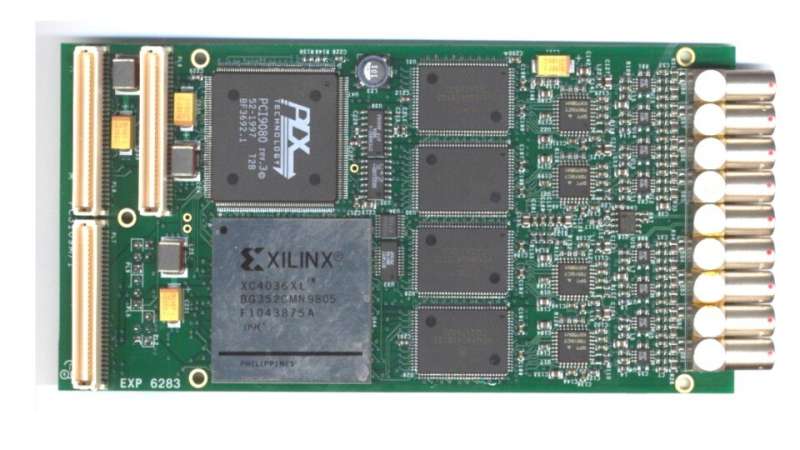This article has been reviewed according to Science X's editorial process and policies. Editors have highlighted the following attributes while ensuring the content's credibility:
fact-checked
trusted source
proofread
Project could enable self-driving cars to make better decisions faster and avoid collisions

In the future, autonomous or self-driving cars are expected to considerably reduce the number of road accident fatalities. Advancing developments on this revolutionary road, CERN and car-safety software company Zenseact have just completed a three-year project researching machine-learning models to enable self-driving cars to make better decisions faster and thus avoid collisions.
When it comes to capturing data from collisions, CERN also requires fast and efficient decision making while analyzing the millions of particle collisions produced in the Large Hadron Collider (LHC) detectors. Its unique capabilities in data analysis are what brought CERN and Zenseact together to investigate how the high-energy physics organization's machine-learning techniques could be applied to the field of autonomous driving. Focusing on "computer vision," which helps the car analyze and respond to its external environment, the goal of this collaboration was to make deep-learning techniques faster and more accurate.
"Deep learning has strongly reshaped computer vision in the last decade, and the accuracy of image-recognition applications is now at unprecedented levels. But the results of our research with CERN show that there's still room for improvement when it comes to autonomous vehicles," says Christoffer Petersson, Research Lead at Zenseact.

For processing the computer vision tasks, chips known as field-programmable gate arrays (FPGAs) were chosen as the hardware benchmark. FPGAs, which have been used at CERN for many years, are configurable integrated circuits that can execute complex decision-making algorithms in micro-seconds.
The researchers found that significantly more functionality could be packed into the FPGA by optimizing existing resources. The best part is that tasks could be performed with high accuracy and short latency, even on a processing unit with limited computational resources.
"Our work together elucidated compression techniques in FPGAs that could also have a significant effect on increasing processing efficiency in the LHC data centers. With machine-learning platforms setting the stage for next-generation solutions, future development of this research area could be a major contribution to multiple other domains, beyond high-energy physics," says Maurizio Pierini, Physicist at CERN.
The same techniques can also be used to improve algorithmic efficiency while maintaining accuracy in a wide range of domains, from energy efficiency gains in data centers to cell screening for medical applications.
Two papers written as part of the project are both published in the journal Machine Learning: Science and Technology.
More information: Nicolò Ghielmetti et al, Real-time semantic segmentation on FPGAs for autonomous vehicles with hls4ml, Machine Learning: Science and Technology (2022). DOI: 10.1088/2632-2153/ac9cb5
Thea Aarrestad et al, Fast convolutional neural networks on FPGAs with hls4ml, Machine Learning: Science and Technology (2021). DOI: 10.1088/2632-2153/ac0ea1




















